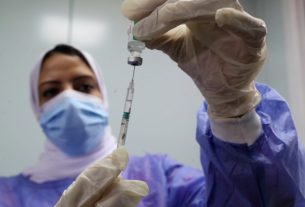Investing in nutrition is not just a moral imperative; it is a profound economic opportunity. According to a recent report from the World Bank, scaling up nutrition interventions could prevent approximately 980,000 stillbirths each year and generate an estimated $2.4 trillion in economic benefits. This staggering potential underscores the urgent need for global policymakers to prioritize nutrition as a key component of public health strategies.
The Cost of Malnutrition
Malnutrition remains a pressing global challenge, affecting millions of individuals, particularly in low- and middle-income countries. Poor nutritional status during pregnancy and early childhood can lead to severe consequences, including stillbirths, stunted growth, and cognitive impairments. The World Bank’s investment framework for nutrition outlines that addressing malnutrition not only saves lives but also enhances productivity and economic stability.
The economic burden of malnutrition is substantial. The Global Nutrition Report estimates that malnutrition costs countries between 2% to 16% of their GDP annually due to healthcare costs and lost productivity. This stark reality highlights the urgent need for comprehensive nutrition programs.
Benefits of Scaling Up Nutrition
The World Bank report emphasizes that scaling up effective nutrition interventions—such as maternal and child health programs, fortification of staple foods, and nutrition education—can yield significant benefits. By investing $1 in nutrition, countries could see a return of up to $16 in economic benefits, driven by reduced healthcare costs, improved worker productivity, and enhanced cognitive development in children.
- Preventing Stillbirths: Improved maternal nutrition can lead to healthier pregnancies. The report indicates that enhancing nutrition could prevent up to 980,000 stillbirths annually. Proper nutritional support for expecting mothers ensures healthier birth outcomes, reducing the emotional and economic toll on families and healthcare systems.
- Boosting Economic Growth: The projected $2.4 trillion in benefits from scaling up nutrition represents a combination of increased economic productivity and reduced healthcare expenditures. Countries that prioritize nutrition are likely to see a stronger workforce, with healthier, more capable individuals contributing to economic growth.
- Enhancing Child Development: Adequate nutrition during the critical early years of life is essential for cognitive and physical development. Investments in nutrition can lead to better educational outcomes, higher earning potential, and a more productive workforce in the long run.
Global Efforts and Initiatives
Several global initiatives are underway to address malnutrition and promote better nutrition practices. The UN’s Scaling Up Nutrition (SUN) Movement aims to unite countries, civil society, and businesses in the fight against malnutrition. This multi-stakeholder approach is essential for creating sustainable change.
Additionally, partnerships between governments, NGOs, and the private sector are crucial for implementing effective nutrition programs. The World Bank’s investment framework outlines actionable steps for countries to enhance their nutrition strategies, including leveraging technology for better data collection and analysis.
Conclusion: A Call to Action
The evidence is clear: scaling up nutrition is an essential investment that can prevent stillbirths and generate substantial economic benefits. Governments, organizations, and communities must prioritize nutrition as a fundamental aspect of public health policy.
By committing to comprehensive nutrition strategies, nations can ensure healthier populations, drive economic growth, and ultimately create a more equitable world. The time to act is now—investing in nutrition today will yield dividends for generations to come.
References
- World Bank. “Investment Framework for Nutrition.” World Bank.
- Global Nutrition Report. “Global Nutrition Report 2021.” Global Nutrition Report.
- UN Scaling Up Nutrition Movement. “About the SUN Movement.” SUN Movement.



